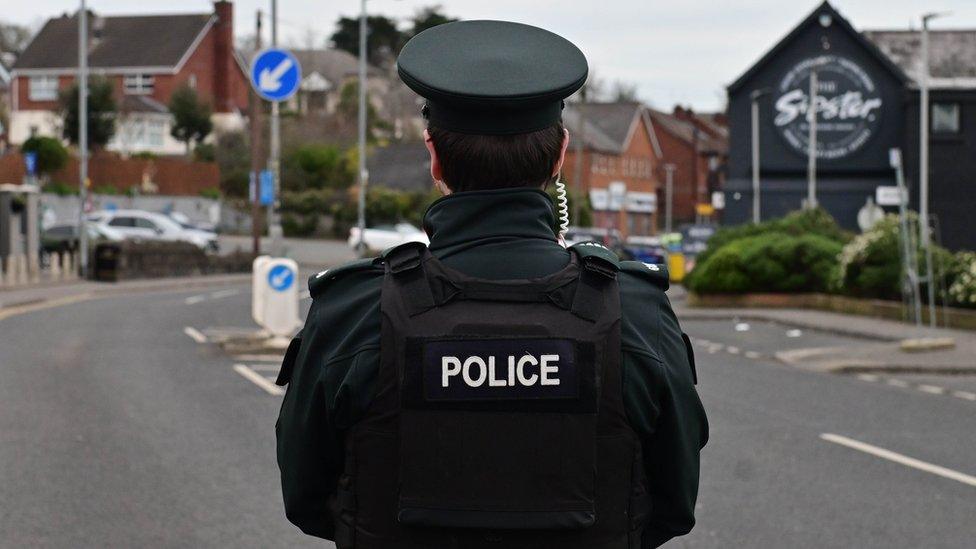Paramilitaries: Former detective asks what it will take to end gangs
- Published
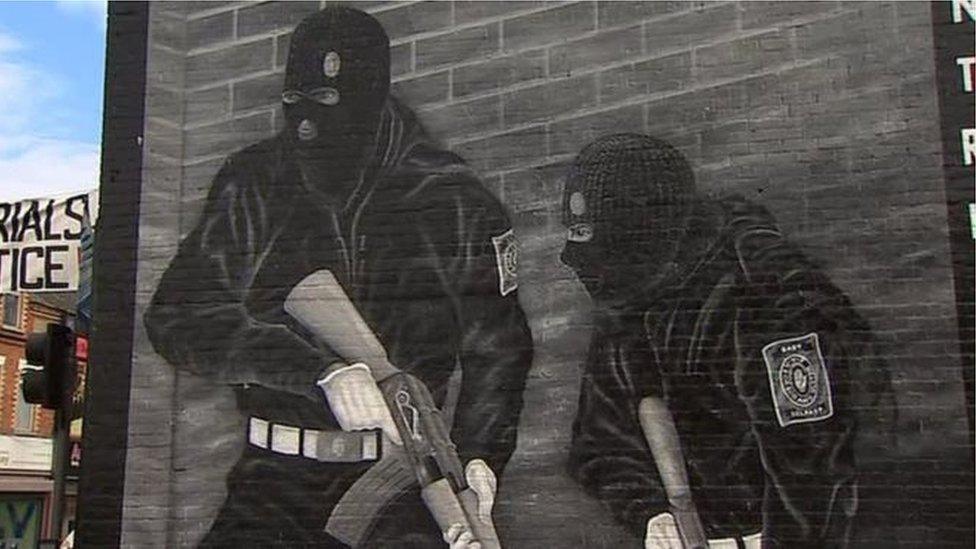
"Why would they step away from a million pound criminal enterprise?"
It is a question posed by the former head of the Police Service of Northern Ireland's paramilitary crime taskforce on whether government-backed talks with paramilitaries would bear fruit.
John McVea retired as a detective chief superintendent earlier this year, after a 30-year career spanning the peace process.
"These organisations today default to the gun," he said.
It comes as Northern Ireland Secretary Chris Heaton-Harris said he was giving serious thought to a proposal involving formal dialogue with illegal republican and loyalist organisations to help their transition towards the eventual goal of disbandment.
The idea was floated by the Independent Reporting Commission (IRC) in a report last December, which urged the appointment of a go-between to prepare the ground for a formal process of engagement.
The proposal is being discussed by officials between London and Dublin.
"Are there individuals in the leadership of organisations who want to step away? I have no doubt there are," Mr McVea told BBC Northern Ireland's The View programme.
"But we are now 25 years after the Good Friday Agreement. How much time is it going to take for this [disbandment] to happen?"
Pointing to diversion projects within communities, he added: "There have been millions of pounds poured into this and where has it got us?
"I can name the murder victims.
"These organisations today default to the gun, default to terror and default to terrorising communities."
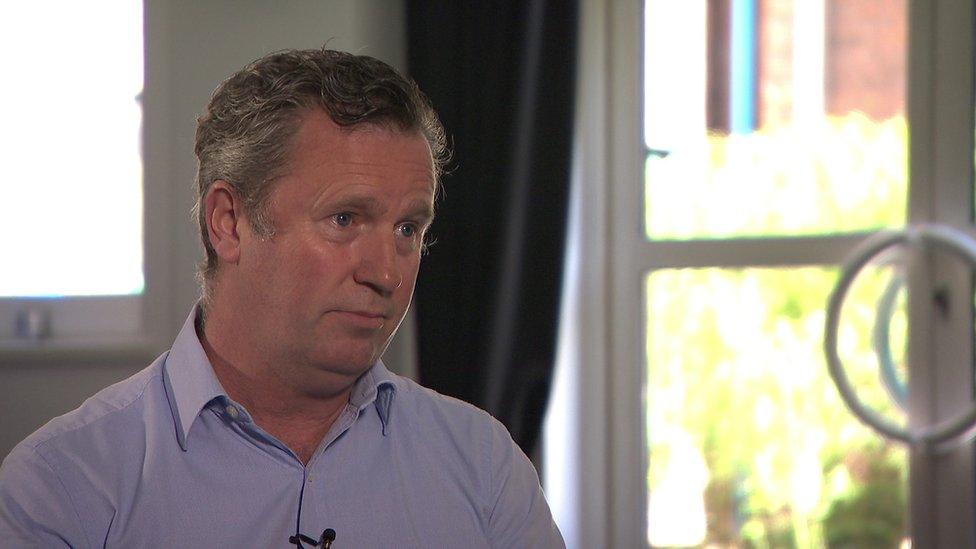
John McVea recently retired
Paramilitarism in Northern Ireland in 2023 has many guises.
From the terrorism waged by small dissident republican groups like the New IRA, to drug dealing and other criminal enterprises of elements within the UDA, UVF and the INLA.
According to the Department of Justice, the problem is estimated to affect between 15-30% of Northern Ireland's population.
Fourteen organisations remain outlined under terror legislation.
'Lack of will'
Dealing with paramilitarism is often said to be part of the unfinished business of the peace deal in 1998 which formally ended the Troubles.
Academic Duncan Morrow said opportunities to properly tackle the issue had been missed.
"There has been a lack of will to really push this because it is so complicated.
"Maybe we didn't do the Good Friday Agreement completely.
"There were other opportunities around decommissioning and there might have been a more complete agreement there.
"There is no real direction from the top as to how this [disbandment] is to happen."
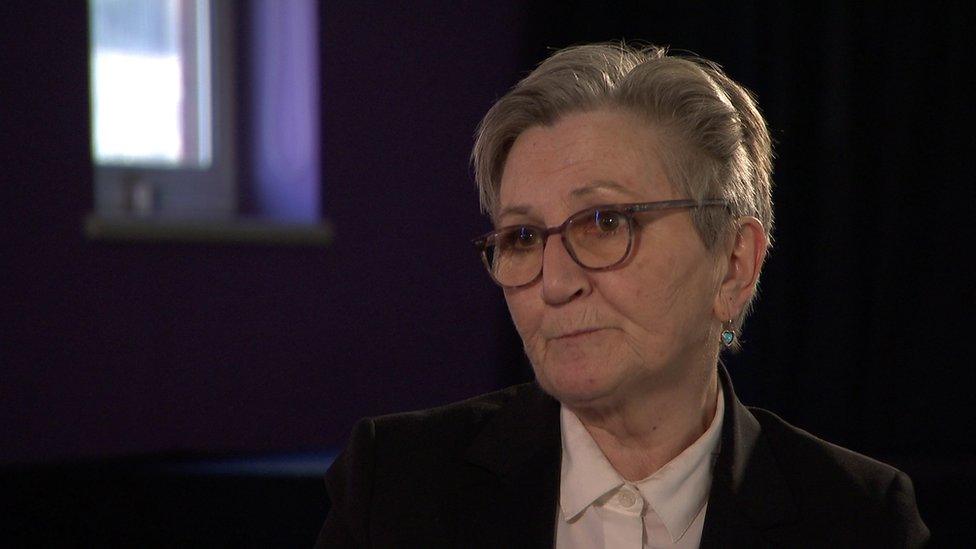
Marie Breen Smyth says she believes there is merit in government-sponsored talks
Marie Breen Smyth has had dealings with paramilitaries going back 50 years and she is currently the government-appointment independent reviewer of security legislation.
In written evidence to the Northern Ireland Affairs Committee recently, she said she had been in contact with the UDA and UVF.
She believes there is merit in government-sponsored talks.
"We need to do something different," she said.
"That something is direct engagement and it is allowing sub-groups, not just the entirety of an organisation but those pieces of the organisation that are willing to transition, to do so.
"We sort out the wheat from the chaff and the remainder who don't wish to transition simply become a law enforcement problem."
She said there should be pre-conditions to talks and ruled out financial inducements.
"This is something that needs to be clarified from the get go - there is no sweetener," she said.
"The second thing is they must forswear all forms of violence and intimidation, that's absolutely central to this moving forward."
Ms Breen Smyth concluded by stating "sitting doing nothing" is the wrong approach.
You can watch the full report on The View here.
Related topics
- Published8 March 2023

- Published7 December 2021
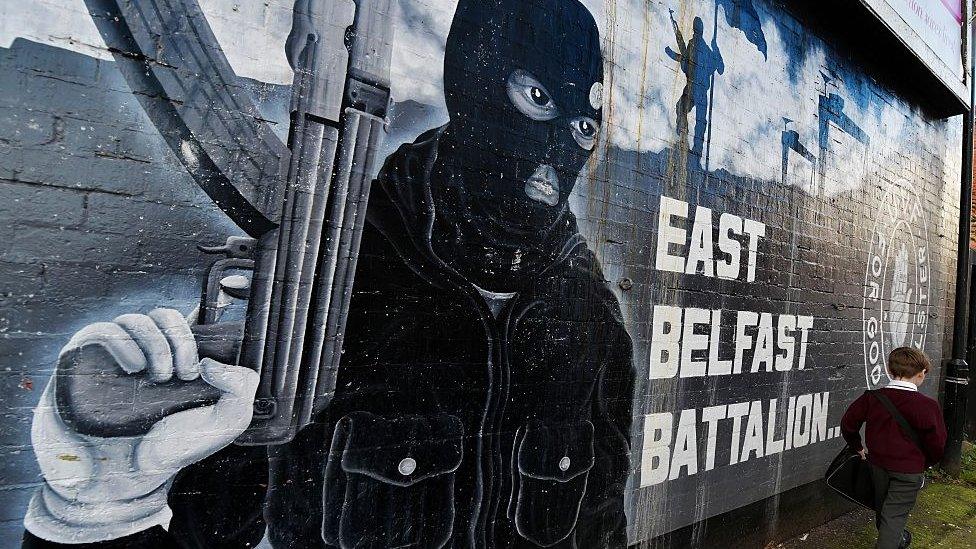
- Published7 March 2023
